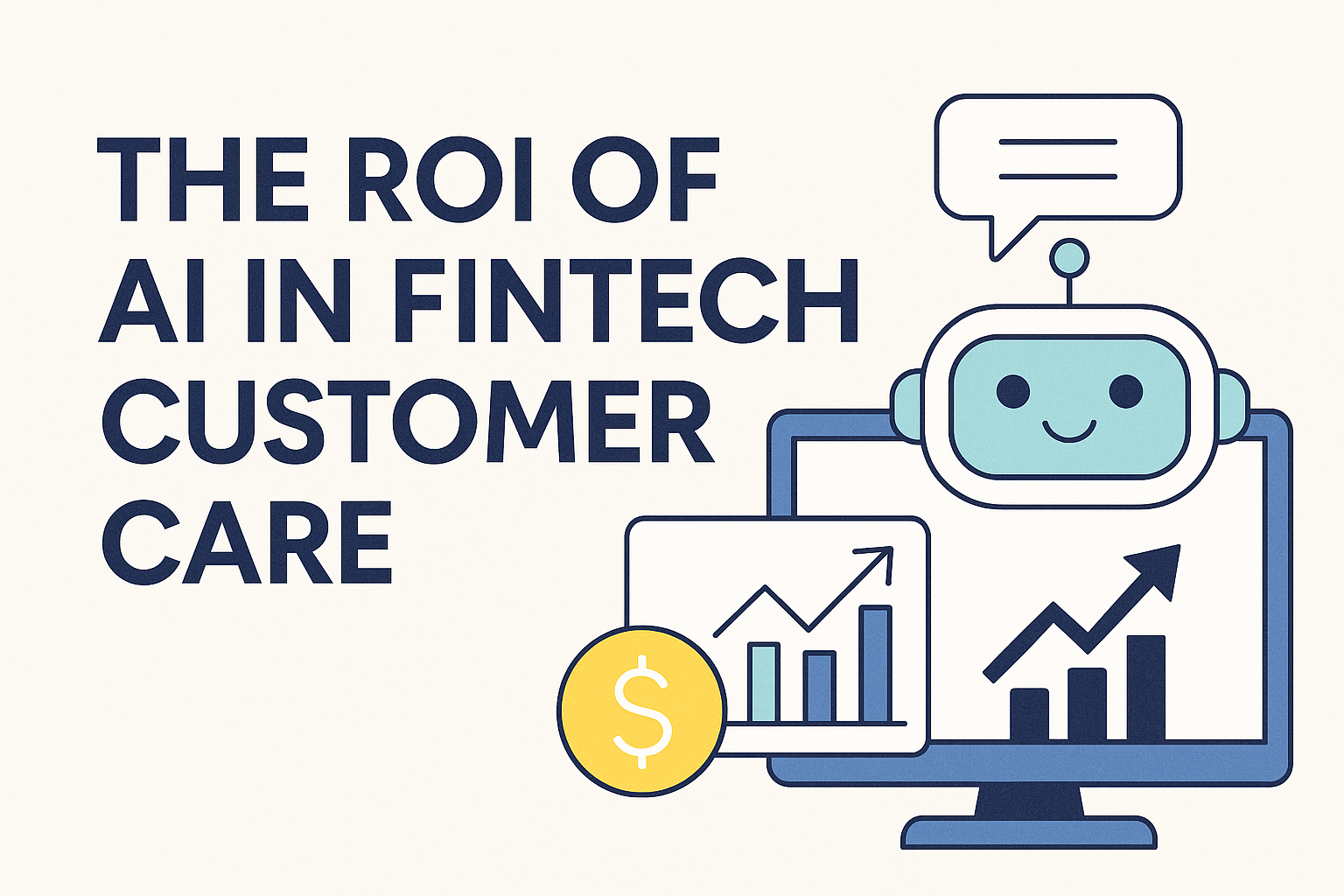


In the dynamic world of financial technology, customer care is a critical touchpoint between fintech companies and their clients. With the rise of digital platforms, the demand for efficient, round-the-clock customer service has skyrocketed. AI-powered solutions in fintech customer support are transforming customer interactions and significantly enhancing Return on Investment (ROI).
This blog explores how fintech AI customer support drives substantial ROI, operational efficiency, and overall business growth.
Artificial Intelligence is redefining the financial landscape by automating repetitive tasks, reducing operational costs, and providing valuable insights into customer behavior. Gartner predicts that by 2025, AI will be involved in 95% of all customer interactions within fintech companies, highlighting the increasing reliance on AI.
AI-driven tools can:
Automated systems enhance customer satisfaction by delivering timely, accurate information without human intervention.
AI enables fintech companies to optimize resources by automating routine inquiries, allowing human agents to focus on complex tasks. Tools like chatbots and virtual assistants provide 24/7 support, essential for global fintech operations serving various time zones.
Moreover, AI-powered analytics predict customer issues before escalation. This proactive approach ensures higher customer success rates, reduces churn, and improves loyalty, thus increasing customer lifetime value.
AI in fintech customer care significantly improves personalization at scale. Leveraging machine learning algorithms, AI systems analyze vast amounts of data to offer tailored recommendations and solutions.
When customers ask for information related to specific terms like "fyp" (For Your Portfolio) or "tbf meaning" (To Be Fair), AI delivers contextually relevant answers seamlessly.
Personalized support fosters trust, strengthens customer relationships, and ultimately enhances the company's bottom line.
Implementing AI in customer support can notably reduce operational costs. According to McKinsey, AI can cut customer service costs by up to 30%, reducing the necessity for extensive human-agent teams.
AI-driven self-service portals further minimize staffing needs, while intelligent upselling and cross-selling capabilities create new revenue opportunities.
For example, fintech companies utilizing AI may proactively suggest investment products or credit options when customers inquire about terms like "dm meaning" (Direct Message), turning support interactions into revenue-generating opportunities.
Rapid and accurate responses to customer inquiries are essential in fintech. AI leverages Natural Language Processing (NLP) and machine learning to understand and respond effectively to complex queries.
Whether customers are curious about digital marketing tools like "Salesloft," or looking for definitions of jargon such as "what does dm mean," AI ensures immediate, precise answers, significantly enhancing the support experience.
To accurately measure AI’s ROI in customer support, decision-makers should evaluate:
While upfront investments in AI can be substantial, the long-term cost savings and revenue growth justify the expenditure.
Despite its advantages, AI integration in fintech customer care presents challenges, notably data privacy and security. Ensuring compliance with regulations like GDPR is crucial to maintaining trust.
Additionally, AI cannot entirely replace human empathy and nuanced understanding. Training AI to recognize when to escalate issues to human agents is vital to preserve high-quality service.
Looking ahead, AI's role will continue to grow, especially with advancements in Generative AI capable of simulating realistic human conversations. Fintech firms must adapt quickly to leverage these opportunities and maintain competitive advantage.
Harnessing fintech AI customer support revolutionizes client interaction management, automates routine processes, enhances personalization, and generates insightful business decisions, delivering substantial ROI.
In today's competitive market, investing in AI isn't just advantageous—it’s essential for fintech companies aiming for sustainable growth.
Try Twig for free now and experience the future of fintech customer care.
.png)